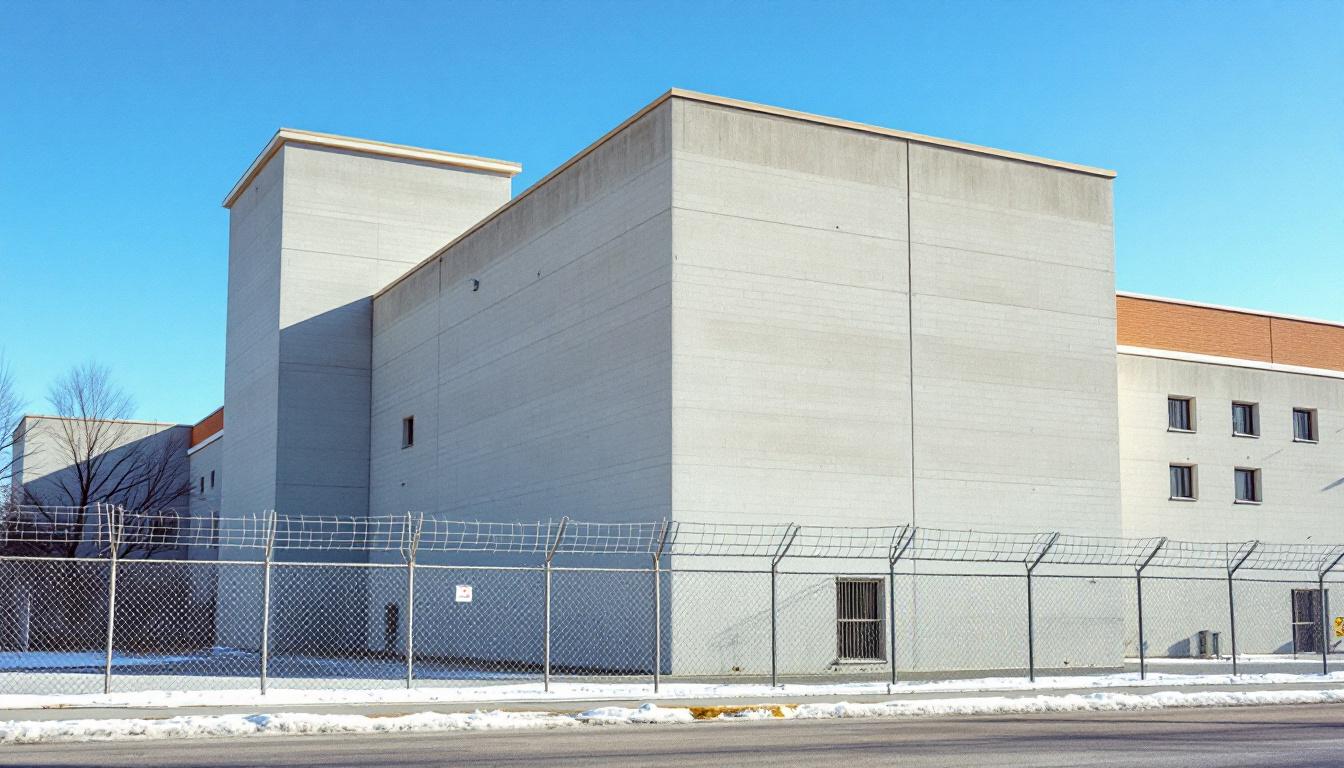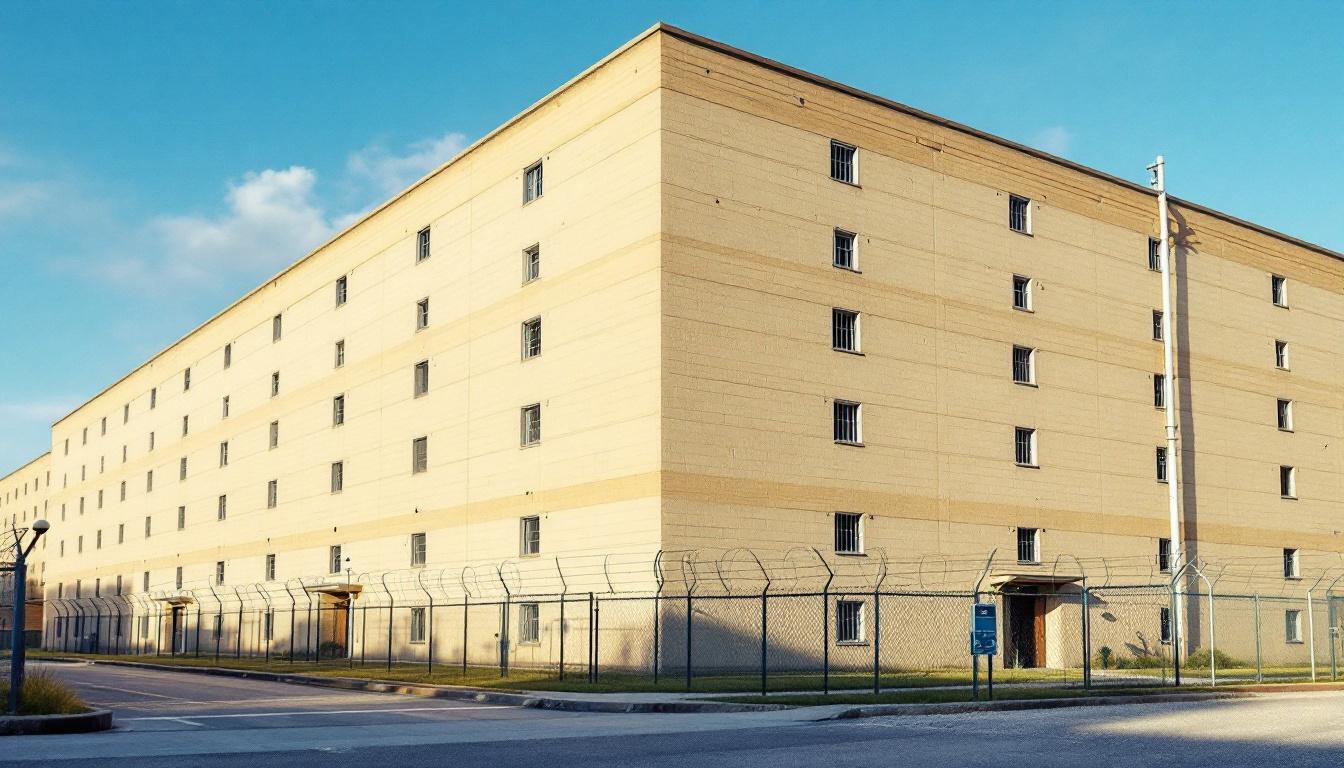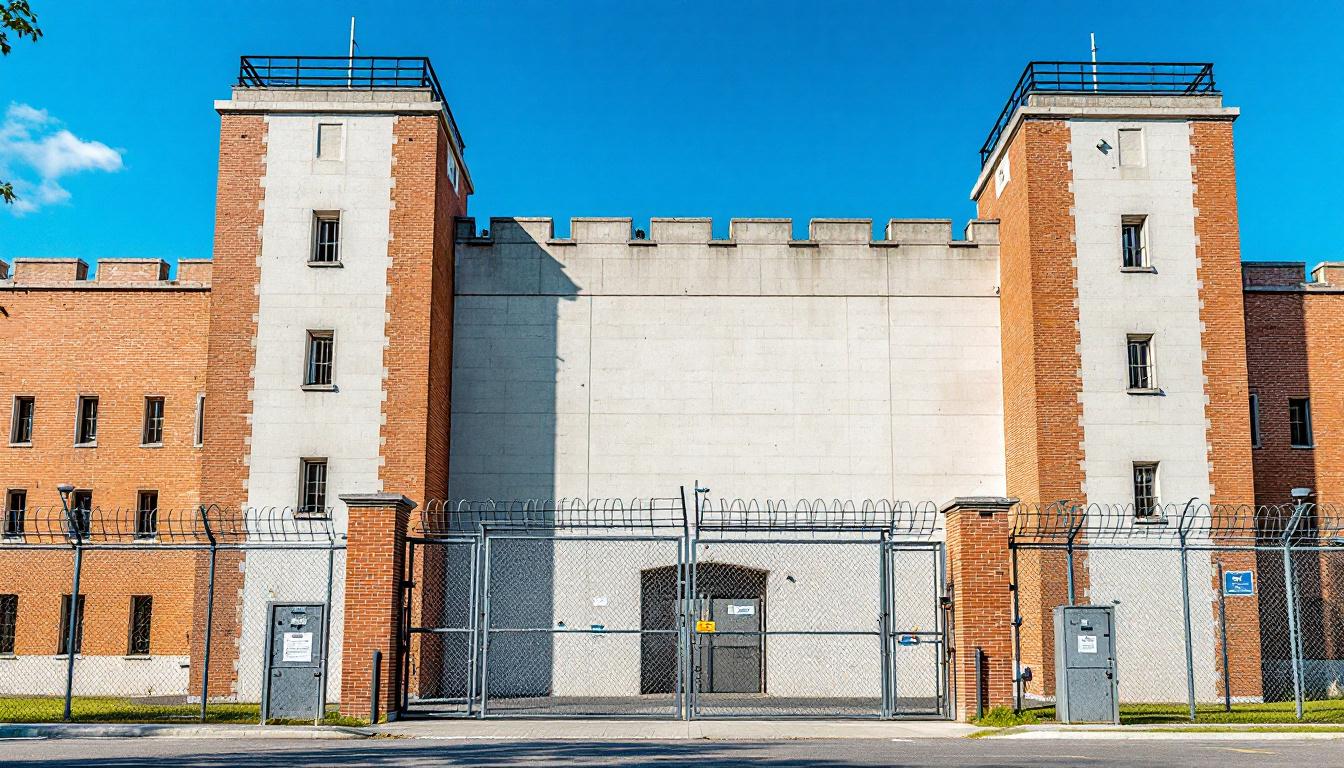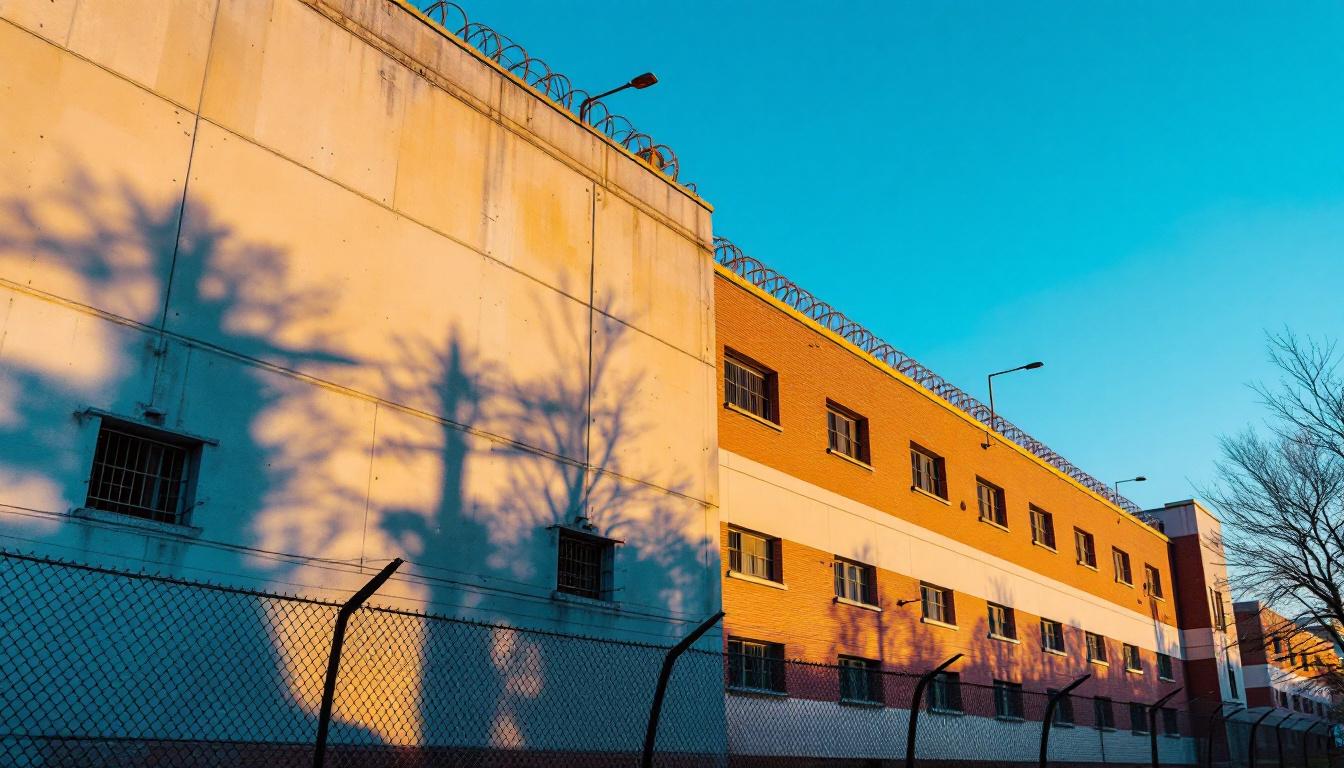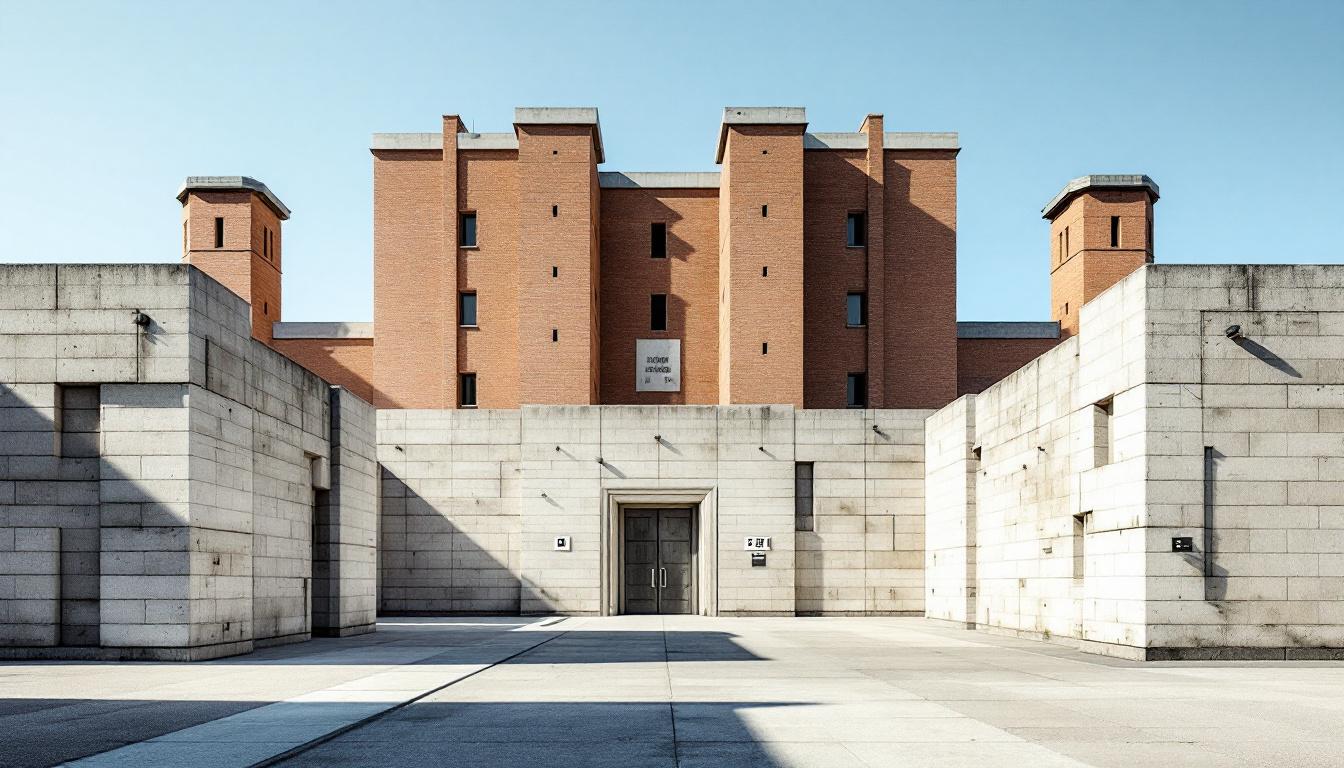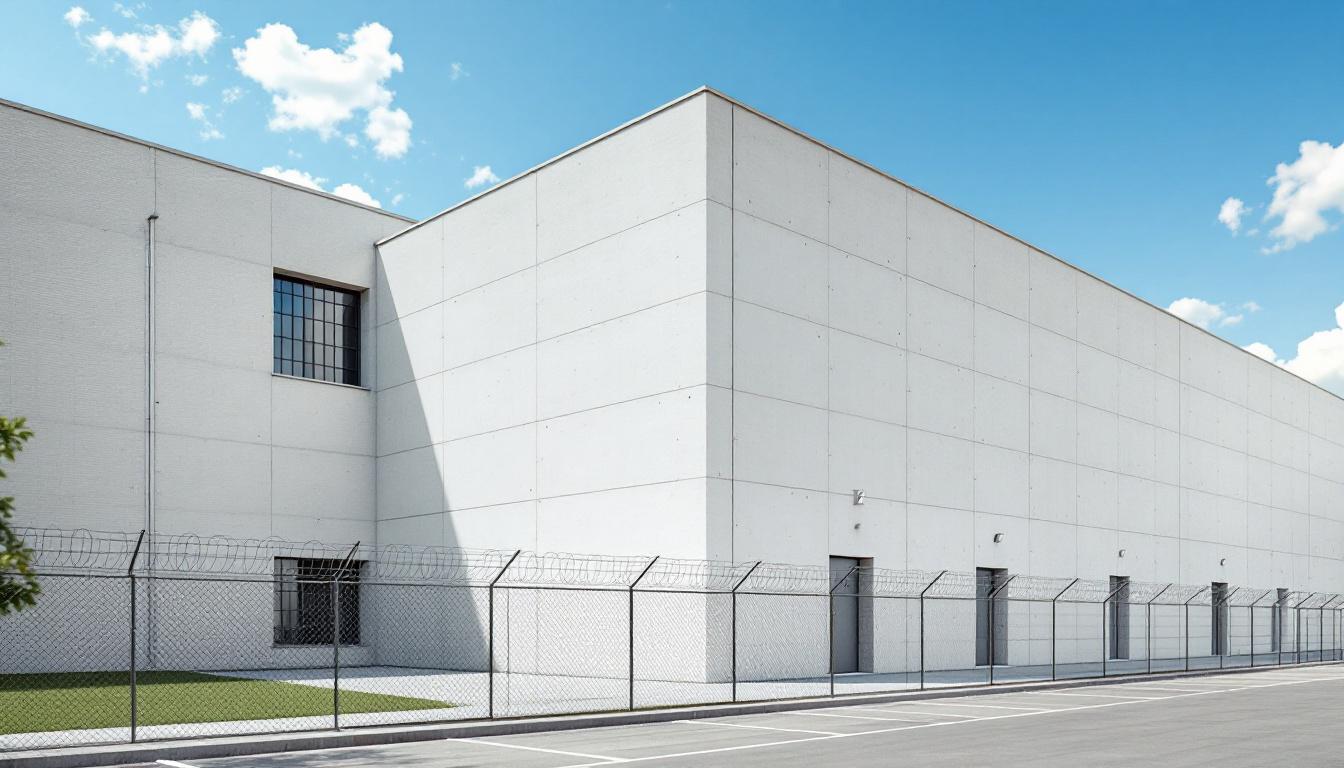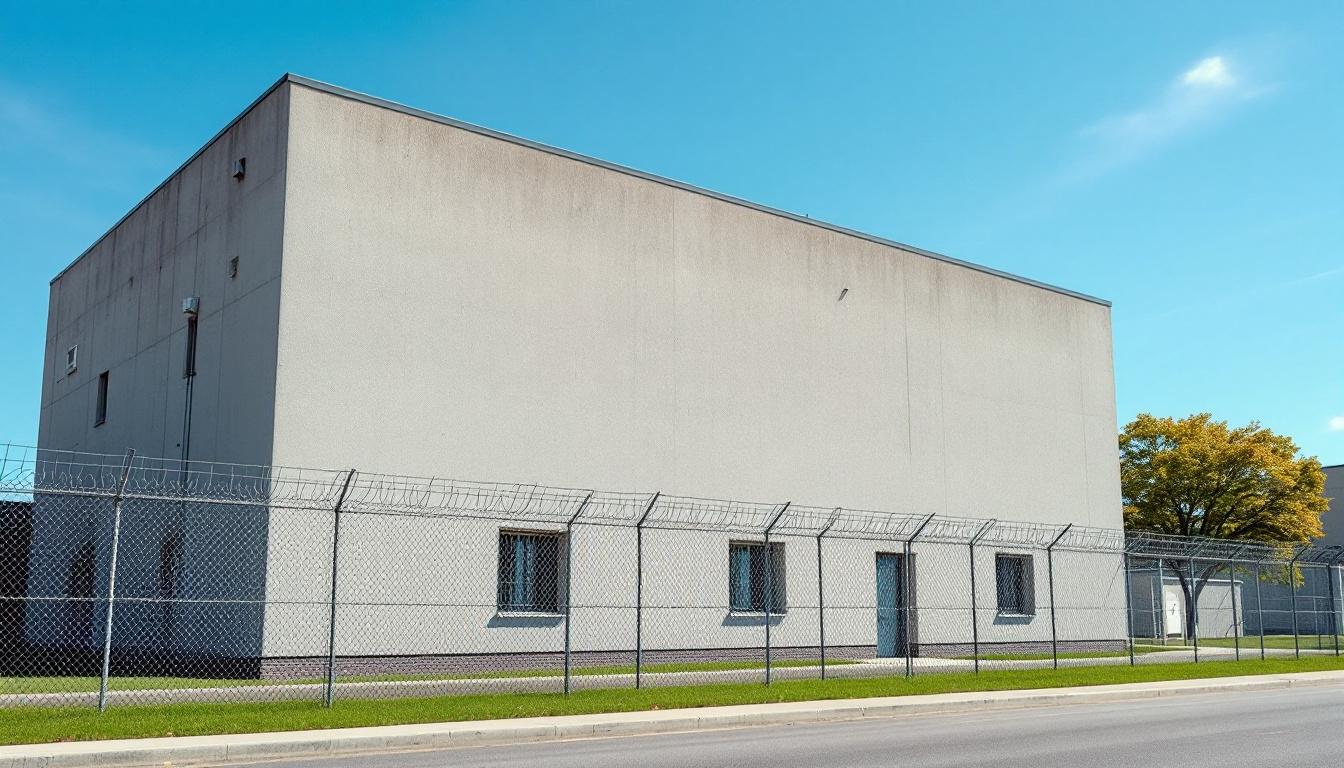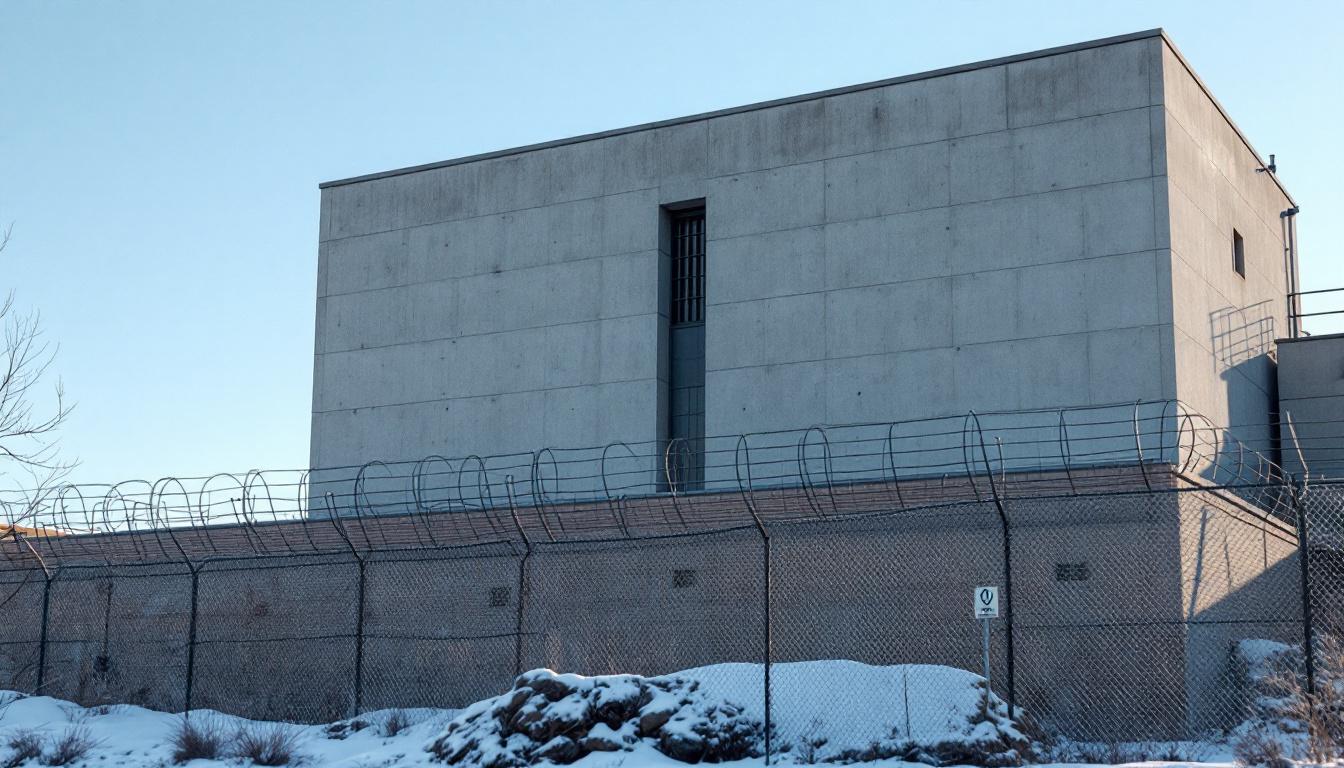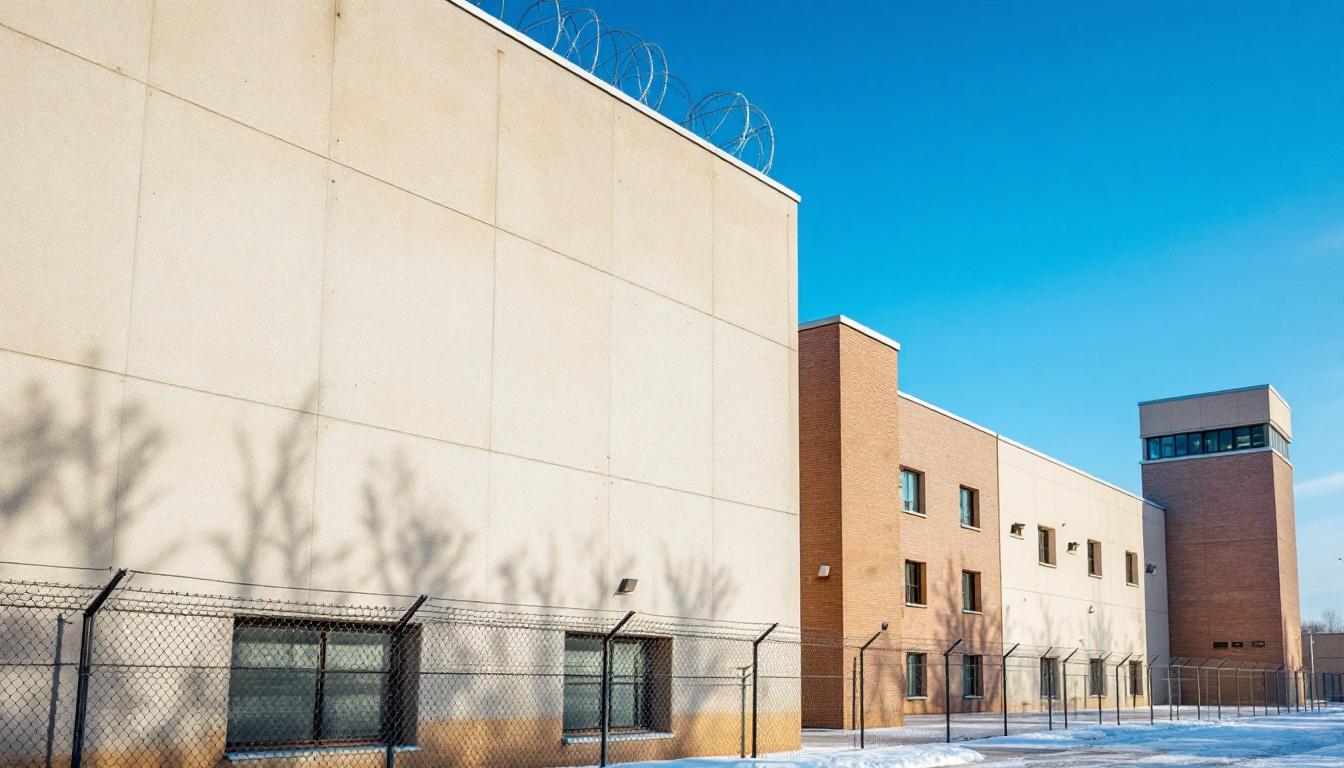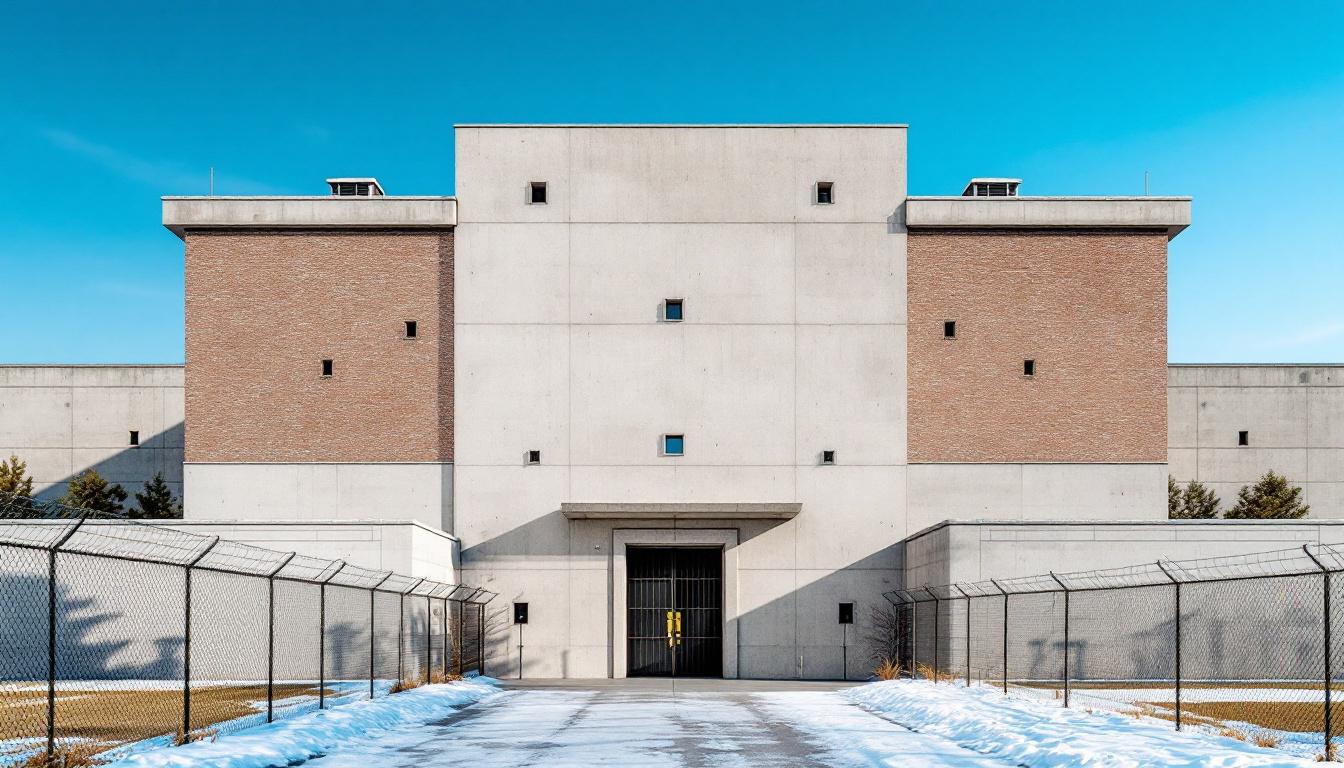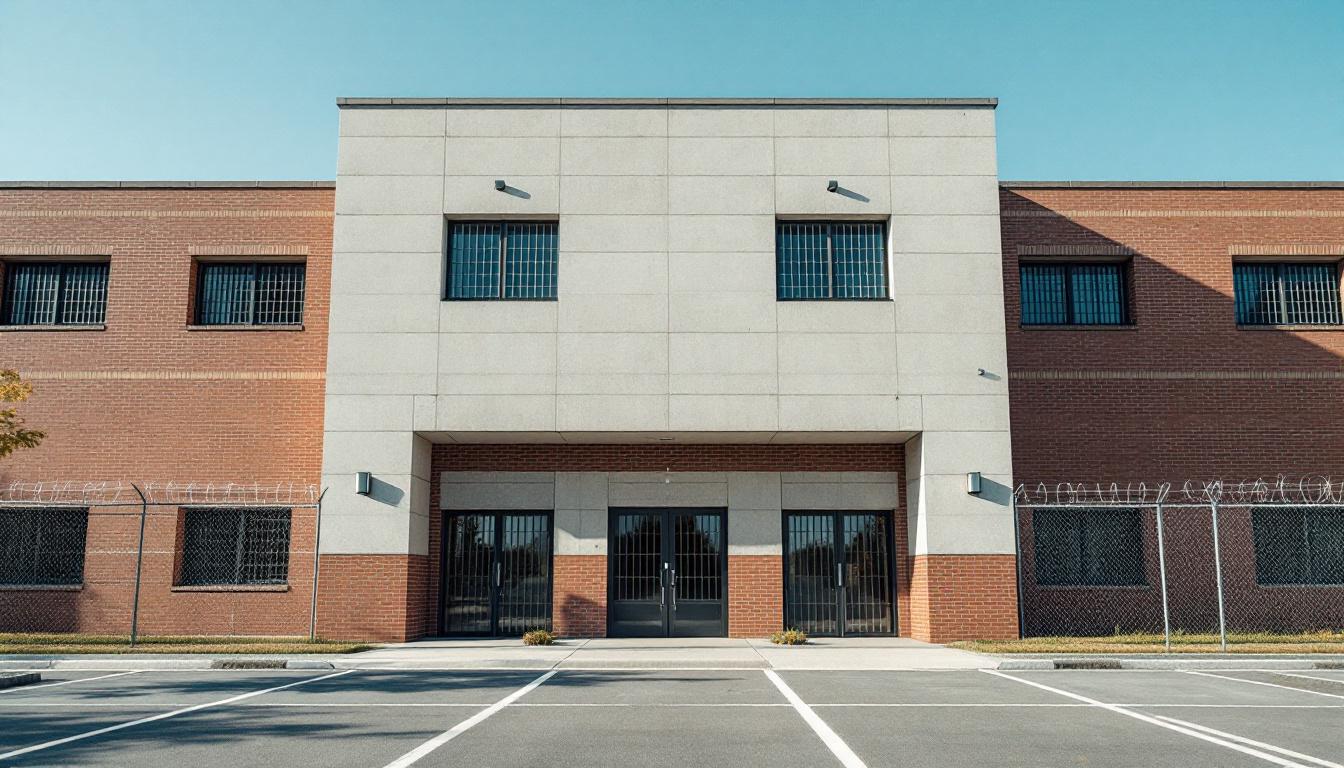
Quick Navigation
How to contact an inmate at Beaufort County Detention Center
This comprehensive guide will walk you through how to connect with an inmate at Beaufort County Detention Center. Follow the steps below to find an inmate and send letters and photos:
- Search for the inmate using our search tool below
- Create your account or log in to Penmate
- Write your message (up to 6,000 characters)
- Send instantly - inmates receive printed copies daily
Find an Inmate
Search for an inmate to start communicating today
Tip: You can search by first name, last name, or inmate ID number
To contact a person at Beaufort County Detention Center start by searching for the person on the official facility website. Perform a search by following these steps:
- Step 1: Enter their first name and last name into the search form and click "Search"
- Step 2: Locate their inmate record
- Step 3: Write down their Inmate ID and any housing information provided
Important! Be sure to enter the person's full name. Nicknames should not be used.
How to Send Messages to Inmates

You can use your phone or computer to send emails, letters, and photos to an inmate. Messages are sent electronically to inmate tablets or kiosks at the facility. If you would like to send a message, start by searching for an inmate at Beaufort County Detention Center.
Sending Photos and Postcards

A great way to send love and support to a loved one at Beaufort County Detention Center is to send photos and postcards. It only takes a few minutes to send photos from your phone and it makes a huge difference. You can also mail postcards with words of support and inspiration, or design your own postcard for special moments like birthdays and holidays.
Important! Be sure not to send any explicit photos or they may not be approved by the facility. You can also use a photo printing app like Penmate to make sure your photos are printed at the correct size (4x6 or 3x5) and are mailed according to the rules and regulations of Beaufort County Detention Center.
Frequently asked questions about Beaufort County Detention Center
-
How long does it take to deliver a message?
If you're sending an email message your letter is usually delivered within 24-48 hours. For messages sent via mail you should expect delivery within 3-7 days. All messages will need be approved by Beaufort County Detention Center.
-
How much does it cost to send a message to Beaufort County Detention Center?
You can send a message free using your phone or mail a message via USPS for the price of a $0.60 stamp and envelope. You can also purchase credits or e-stamps from services starting at $1.99.
-
What services can I use to contact an inmate at Beaufort County Detention Center?
Penmate
You can use Penmate to send letters and photos to an inmate from your phone. It's an easy way to stay in touch during your loved one's incarceration. Use the inmate locator to find an inmate's location and contact information, then you can send messages within a few minutes.
Securus messaging
Securus may be another option for communicating with an inmate at Beaufort County Detention Center. You can create a friends and family account and purchase credits to send messages. All messages will be reviewed and must be approved by the facility.
JPay
Some county jails and state prisons may support sending messages with JPay. You must register an account with the system, find your loved one, and purchase stamps to send messages. For some locations you can also attach photos.
Smart Jail Mail
You may also check if Smart Jail Mail is available at Beaufort County Detention Center. Smart Jail Mail is operated by Smart Communications and has contracted with some state and county jails. After purchasing credits, your messages and photos are sent to the facility, printed out, and then handed out to your loved one.
-
What is the mailing address of Beaufort County Detention Center?
Mailing address:
Beaufort County Detention Center
106 Ribaut Rd
Beaufort, SC 29902
Phone: (843) 255-5200Business hours:
- Monday: Open 24 hours
- Tuesday: Open 24 hours
- Wednesday: Open 24 hours
- Thursday: Open 24 hours
- Friday: Open 24 hours
- Saturday: Open 24 hours
- Sunday: Open 24 hours
-
What are the visiting hours at Beaufort County Detention Center?
Visiting hours at Beaufort County Detention Center vary by housing unit and security level. Generally, visits are scheduled on weekends and holidays, with some facilities offering weekday visits. Contact the facility directly at (843) 255-5200 or check their website for the current visiting schedule. Visits typically last 30-60 minutes and must be scheduled in advance.
-
What items are prohibited when sending mail to Beaufort County Detention Center?
Prohibited items typically include: cash, personal checks, stamps, stickers, glitter, glue, tape, staples, paperclips, polaroid photos, musical or blank greeting cards, hardcover books, magazines with staples, and any items containing metal or electronics. Only send letters on plain white paper with blue or black ink. Photos must be printed on regular photo paper (no Polaroids). Always check with Beaufort County Detention Center for their specific mail policies.
-
How do I send money to an inmate at Beaufort County Detention Center?
You can send money to an inmate at Beaufort County Detention Center through several methods: 1) Online using JPay, Access Corrections, or the facility's approved vendor, 2) Money orders mailed directly to the facility with the inmate's name and ID number, 3) Kiosks located in the facility lobby, or 4) Over the phone using a credit or debit card. Fees vary by method, typically ranging from $2.95 to $11.95 per transaction.
-
Can I schedule a video visit with an inmate at Beaufort County Detention Center?
Many facilities now offer video visitation as an alternative to in-person visits. At Beaufort County Detention Center, video visits may be available through services like Penmate, Securus Video Connect, GTL, or ICSolutions. Video visits typically cost $10-20 for 20-30 minutes and must be scheduled in advance. You'll need a computer or smartphone with a camera and reliable internet connection. Contact the facility for their specific video visitation policies and approved vendors.
-
What identification do I need to visit an inmate at Beaufort County Detention Center?
All visitors must present valid government-issued photo identification such as a driver's license, state ID, passport, or military ID. Minors must be accompanied by a parent or legal guardian who can provide the minor's birth certificate. Some facilities require visitors to be on the inmate's approved visitation list, which may require a background check. Contact Beaufort County Detention Center for specific ID requirements and visitor approval procedures.
-
How can I find out an inmate's release date?
To find an inmate's release date at Beaufort County Detention Center, you can: 1) Use the online inmate search tool if available, 2) Call the facility's records department, 3) Contact the inmate's case manager or counselor, or 4) Have the inmate provide this information during a call or visit. For privacy reasons, some facilities only release this information to immediate family members.
Facility Overview
Contact Information
Beaufort County Detention Center106 Ribaut Rd
Beaufort, SC 29902
Phone: (843) 255-5200
Official Website

About Beaufort County Detention Center
Nestled in the heart of South Carolina's Lowcountry, Beaufort County Detention serves as a vital component of the regional correctional system, maintaining secure custody while prioritizing meaningful pathways toward successful community reintegration. This SC correctional facility operates with a dual commitment to public safety and individual transformation, recognizing that effective detention extends far beyond containment to encompass comprehensive support for positive behavioral change.
The facility typically offers a range of residents services designed to address the complex factors that often contribute to justice system involvement. Educational programming may include basic literacy instruction, GED preparation, and vocational training opportunities that help individuals develop marketable skills for their eventual return to the community. Mental health support, substance abuse counseling, and life skills development often form core components of the rehabilitation approach, while structured daily routines help maintain stability and personal accountability. These evidence-based interventions reflect a growing understanding that successful outcomes depend on addressing underlying challenges rather than simply managing custody.
Beaufort County Detention generally maintains connections with local community organizations and service providers to facilitate smoother transitions upon release. The detention center's location in Beaufort provides access to regional resources and support networks that can prove essential for long-term success. Through this comprehensive approach to custody and rehabilitation, the facility aims to reduce recidivism while promoting public safety and individual growth throughout the broader Beaufort area and surrounding communities.
Programs & Services
Comprehensive rehabilitation initiatives at this South Carolina facility emphasize skill development and personal transformation through carefully structured programming. The facility's approach typically integrates academic advancement with practical vocational training, recognizing that successful reintegration requires both intellectual growth and marketable employment skills. Residents may participate in multiple concurrent initiatives, allowing them to develop diverse competencies while addressing individual educational deficiencies and career aspirations.
Educational services often encompass fundamental literacy improvement, GED preparation, and distance learning opportunities that enable residents to pursue higher education coursework. These academic initiatives may deliver instruction through both traditional classroom settings and technology-enhanced platforms, accommodating various learning styles and educational backgrounds. Furthermore, specialized vocational training in welding provides residents with hands-on experience in a high-demand trade, typically combining theoretical instruction with practical application under qualified supervision.
Support services extend beyond academic and technical training to address the broader aspects of personal development and spiritual growth. Faith-based initiatives often provide counseling, mentorship, and community-building opportunities that help residents develop positive coping mechanisms and moral frameworks. Additionally, comprehensive vocational programs may include job readiness training, interview preparation, and career planning services that bridge the gap between incarceration and successful employment. These multifaceted support systems typically work in conjunction with educational and vocational components to create a holistic rehabilitation environment that addresses both practical skills and personal transformation.
Daily Life & Visitation
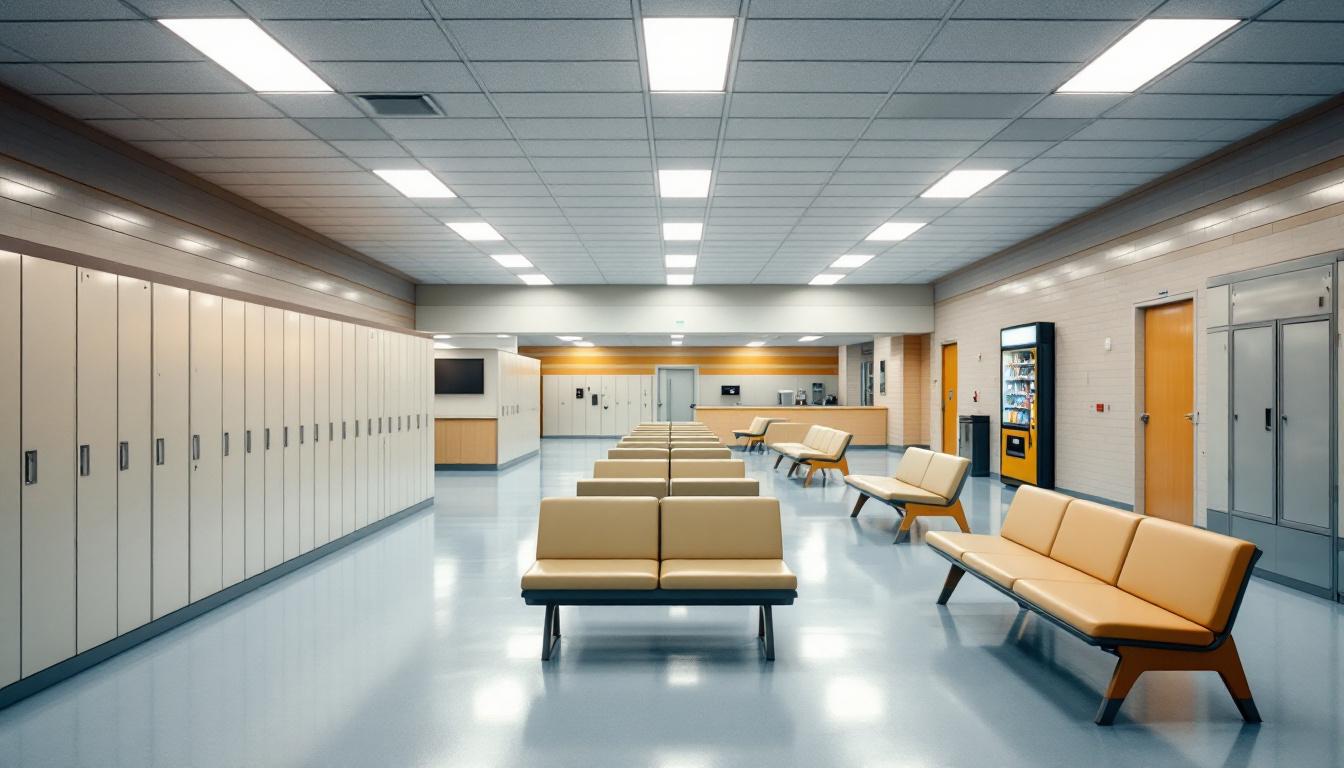
The rhythmic cadence of structured schedules now governs every aspect of residential life, with carefully planned activities that regularly unfold from early morning wake-up calls through evening lockdown procedures. Residents typically begin their days with standardized meal service, followed by work assignments or programming activities that deliver essential structure and purpose. Count times occur at regular intervals throughout the day, providing checkpoints that help maintain facility security while establishing predictable routines that residents generally come to rely upon for stability.
Furthermore, living accommodations at the facility typically consist of shared housing units where residents may be assigned based on classification levels and security considerations. Dormitory-style or cell-based housing arrangements usually include basic amenities such as bedding, personal storage space, and access to common areas during designated times. Meals are generally served in centralized dining areas according to established schedules, with residents rotating through meal service based on their housing assignments. Although personal property is typically limited to approved items, residents may usually access commissary services to purchase additional necessities and approved comfort items.
The facility generally offers various recreational and exercise opportunities that deliver both physical activity and constructive engagement, including outdoor recreation time when weather and security conditions permit. Work assignments may include kitchen duties, maintenance tasks, or facility cleaning responsibilities that provide residents with daily structure and potential skill development. Visitation policies typically allow for scheduled family contact, while communication options may include monitored phone calls and correspondence services. Although programming schedules vary based on facility resources and resident needs, educational classes, counseling services, and other structured activities often provide additional opportunities for personal development and preparation for eventual reintegration into the community.
Ready to Connect?
Start communicating with your loved one today
Search for an Inmate
